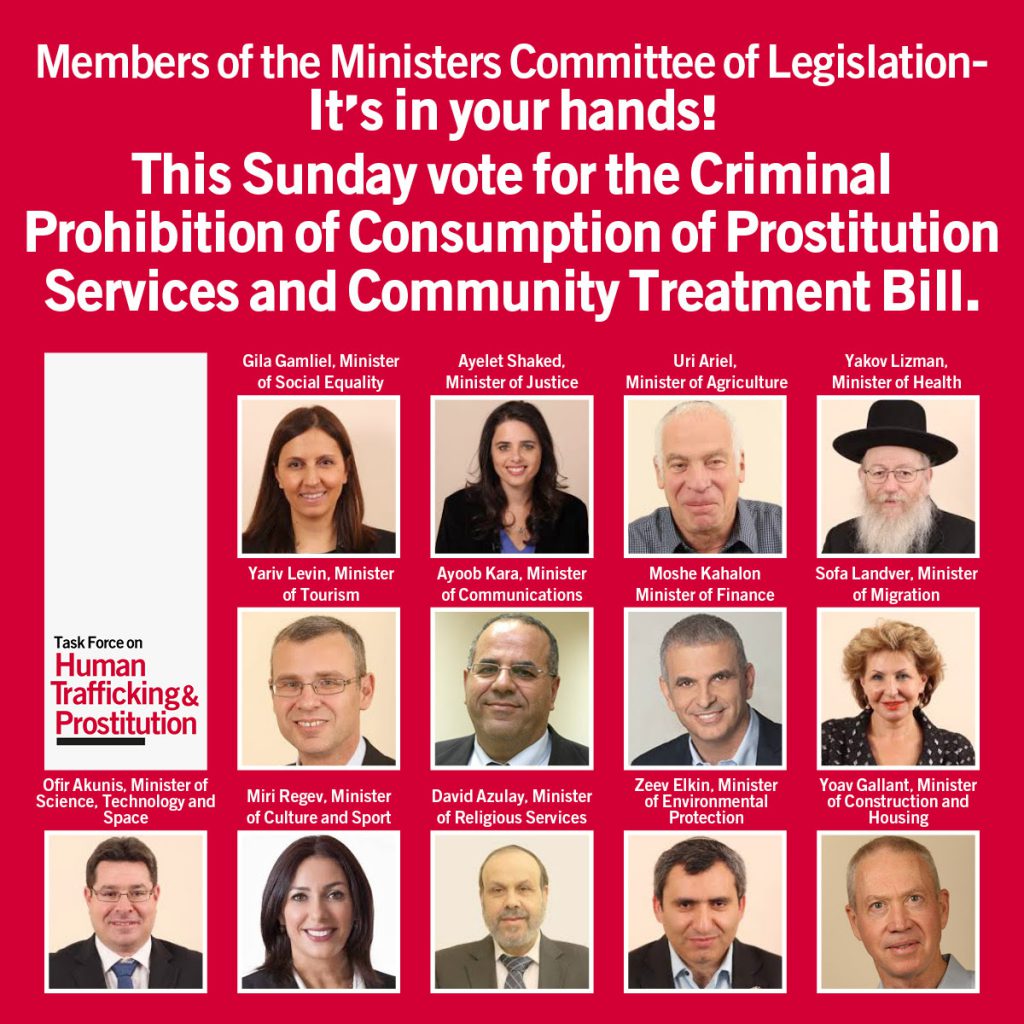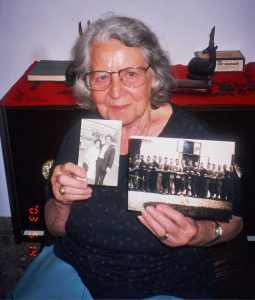December 31, 2018 will be remembered by many as the day Israel’s Knesset did the right thing by finally passing the “Prohibition of Consumption of Prostitution Services Bill” based on Nordic Model legislation, the international standard criminalizing the sex buyer and protecting the prostituted person, nearly always a girl or woman trafficked or coerced into prostitution. In doing so, Israel became the tenth country to demand an end of socially accepted, paid rape.
The bill’s first iteration was conceived, and presented to the Knesset, by former Knesset Members Zehava Gal-On and Orit Zuaretz in 2007. TFHT led the campaign for its passage from that moment forward, lobbying lawmakers in four successive governments, all which dissolved before their full term; stood up to vociferous opposition and threats of physical violence; helped broker unprecedented cross-party cooperation; and when finally, on the last day of the 20th Knesset before its premature dissolution, cheered the bill’s unanimous approval. In the course of this eleven-year effort, we have authored a number of other pieces of significant, related legislation, subsequently enacted, all important steps to facilitate change for Israel society. Today, we definitively declare that the State of Israel will no longer abide the legal, brutal exploitation of another prostituted human being.
Financial support and constant encouragement from our contributors has helped us arrive at this historic moment. We recognize our donors, in Israel and abroad, for sustaining the conviction that Israel could do better. For that confidence in our better future, we are thankful, even as we now begin to prepare new strategies for struggles on the enforcement front.
We are also gratified to note that on January 3, 2019, ATZUM–TFHT received the Ministry for Social Equality “Award For Outstanding Contributions To Eliminate Violence Against Women” in a special ceremony at Beit HaNasi, chaired by Israel’s President, Reuven Rivlin.

Just to share the moment and hope for a better future: below, Ori Keidar of KNKB which pro bono partners with ATZUM, stands next to Gila Gamliel, Minister of Social Equality, and Rabbi Levi Lauer; the two women on Levi’s right are recipients for their projects advancing women’s self-defense workshops and economic and social security.
These exciting developments are product of the dedicated contribution of our present and past staff which includes: Adv. Yael Ben-Saadon and Adv. Nitzan Kahana, current Co-Directors; Adv. Michal Leibel and Adv. Avital Rosenberger-Seri, both former Directors; and Project Coordinators Kayla Zecher-Rothman, Ya’ara Hallakoun, Reuma Schlesinger, and Daphna Galili. We are deeply grateful to Ori Keidar and the law office, Kabiri-Nevo-Keidar-Blum without whose caring, wisdom and unstinting pro bono work we would never have come to this advance of dignity and decency on the streets of Israel.






 During the Shoah, Orna, together with her sisters Olga (1922-2006) and Malvina (1926-2010) and mother, saved more than 25 Jewish men from a work camp in Hungary by finding them hiding places and providing them with food. Thus, she brought life to countless, future, Jewish generations. We are privileged to have extended assistance to her for the past 16 years and to have accompanied her to her place of burial.
During the Shoah, Orna, together with her sisters Olga (1922-2006) and Malvina (1926-2010) and mother, saved more than 25 Jewish men from a work camp in Hungary by finding them hiding places and providing them with food. Thus, she brought life to countless, future, Jewish generations. We are privileged to have extended assistance to her for the past 16 years and to have accompanied her to her place of burial.


